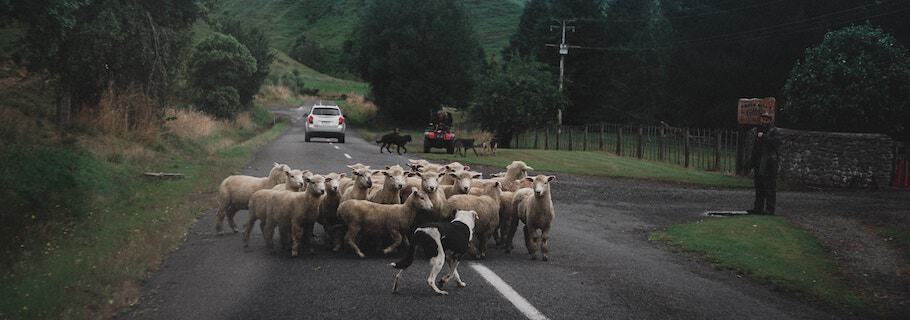I’ve mentioned before that Harold Senkbeil’s The Care of Souls has been a particularly meaningful and challenging book for me, and one I’d commend to every pastor or elder. Today I’d like to share a brief excerpt in which he so aptly describes the relationship between a pastor and his church.
In the old days when I was young, dairy herds were comparatively small. On diversified farms like ours, cows would be let out to graze in pasture between milkings. A disciplined dog was a great asset in rounding them up and bringing them in. I say disciplined because it was essential for good milk production that the cows not be harried or hurried, but merely guided twice a day along the path toward the barn, where they would be secured in their stalls for the milking routine. The natural instinct of the dog to snap and attack had to be captive to the will of the dairyman. This took some training, but with practice it could be done. When that happened, the partnership between man and beast was beautiful to behold. They worked in tandem as one unit. This partnership, it seems to me, illustrates the desired relationship between pastors and the Lord they serve.
In more recent years I’ve come across an even better illustration; it comes not from the dairy industry, but sheep farming. Some years ago while traveling in Great Britain I watched a televised sheepdog competition, a contest testing the ability of shepherds and their dogs to guide a small flock of sheep through a maze. It astonished me to see how closely the dogs worked in sync with their shepherd/masters, deftly guiding those unruly sheep toward the intended goal no matter how intent they were to run off in all directions at once.
With that scene in mind, consider this picture of the relationship between a sheepdog and shepherd as a vivid illustration of the bond between the pastor and the Good Shepherd who has enlisted him in service to his sheep. The sheepdog is iconic of a faithful pastor’s work: one ear tuned to the voice of the Great Shepherd, the other tuned attentively to the sheep. Picture in your mind’s eye the sheepdog contest I mentioned above, then consider this:
That dog was the docile and faithful agent of another mind. He used his whole intelligence and initiative, but always in obedience to his master’s directive will; and was ever prompt at self-effacement. The little mountain sheep he had to deal with were exceedingly tiresome, expert in doubling and twisting and going the wrong way as any naughty little boy. Even so, the dog went steadily on with it; his tail never ceased to wag.
The dog’s relation to the shepherd was the center of his life; and because of that he enjoyed doing his job with the sheep, he did not bother about the trouble, nor get discouraged with the apparent results. The dog had transcended mere dogginess. His actions were dictated by something right beyond himself. He was the agent of the shepherd, working for a scheme which was not his own and the whole of which he could not grasp, and it was just that which was the source of his delightedness, the eagerness and also the discipline with which he worked. But he would not have kept that peculiar and intimate relation unless he had sat down and looked at the shepherd a great deal.
What enthralls me about this picture of a dog in the service of his master are three things: First, the dog can’t possibly know or even begin to grasp the whole of the shepherd’s intent. Second, he’s not self-assertive, but only and entirely serves as an extension of the shepherd’s heart and directive will. He is an agent of another mind at the willing and eager disposal of the shepherd, doing his bidding and finding great delight in the process. He can afford to take his time, confident and assertive but never aggressive. Finally, despite the frustration caused by the sheep, the dog’s tail is always wagging, because he is completely captivated by his love for the shepherd.









